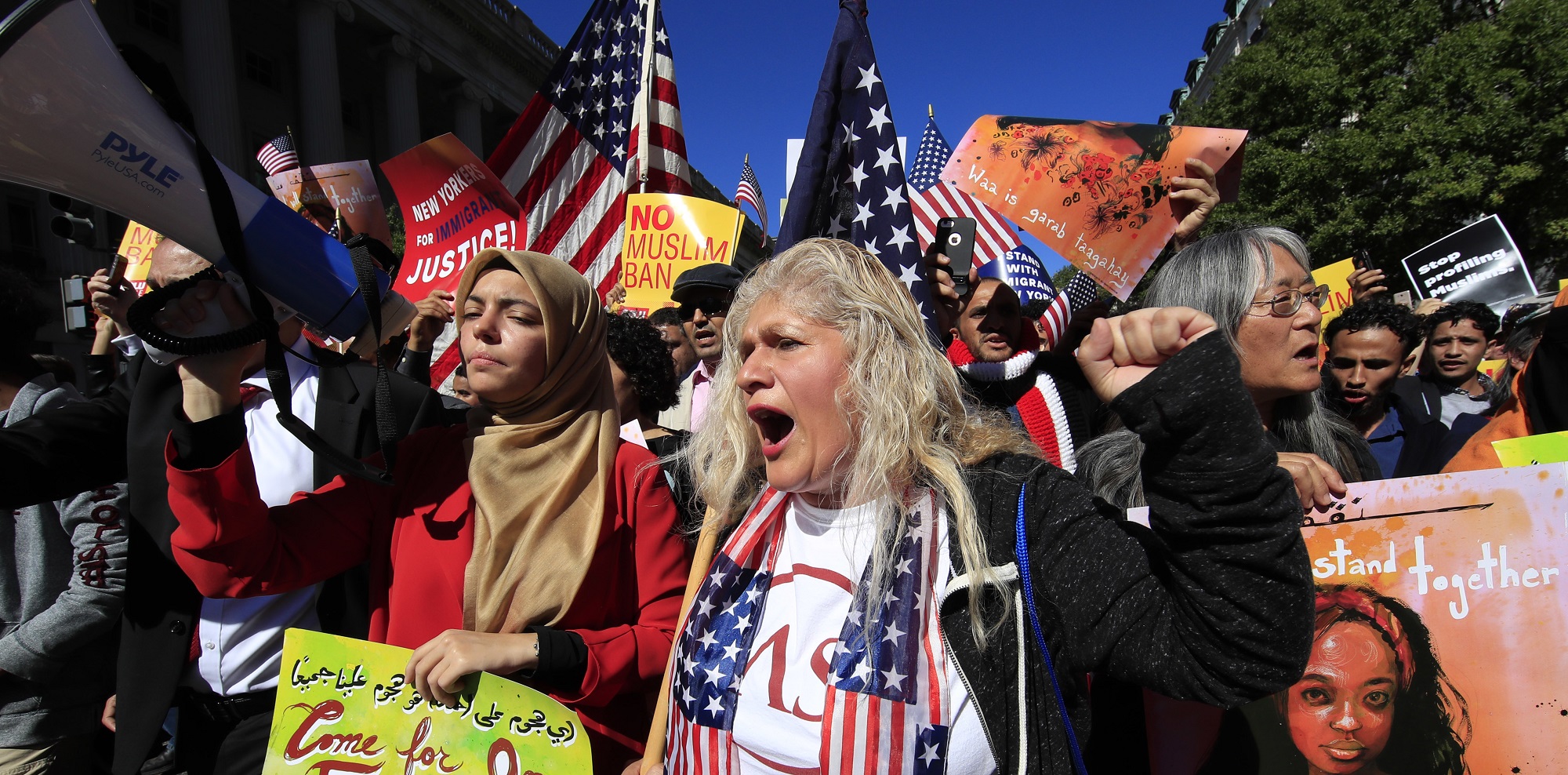
The Supreme Court on Monday allowed the Trump administration to fully enforce a ban on travel to the United States by residents of six mostly Muslim countries. This is not a final ruling on the travel ban: Challenges to the policy are winding through the federal courts, and the justices themselves ultimately are expected to rule on its legality. The action indicates that the high court might eventually approve the latest version of the ban, announced by President Donald Trump in September.
Lower courts have continued to find problems with the policy. White House spokesman Hogan Gidley said the White House is “not surprised by today’s Supreme Court decision permitting immediate enforcement of the President’s proclamation limiting travel from countries presenting heightened risks of terrorism.”
Opponents of this and previous versions of the ban say they show a bias against Muslims. They say that was reinforced most recently by Trump’s retweets of anti-Muslim videos.
“President Trump’s anti-Muslim prejudice is no secret. He has repeatedly confirmed it, including just last week on Twitter. It’s unfortunate that the full ban can move forward for now, but this order does not address the merits of our claims,” said Omar Jadwat, director of the American Civil Liberties Union’s Immigrants’ Rights Project.
The ACLU is representing some opponents of the ban. Just two justices, Ruth Bader Ginsburg and Sonia Sotomayor, noted their disagreement with court orders allowing the latest policy to take full effect.
The eight countries in question are Venezuela, Libya, Chad, Somalia, Yemen, Syria, Iran, North Korea. The decision bans all immigrants and or most visitors from Libya, Chad, Yemen, Syria, Iran, and North Korea, with extra scrutiny for Somali visa applicants. Immigration from Venezuela is allowed, however, business and tourist visas are banned for leaders and their families.




